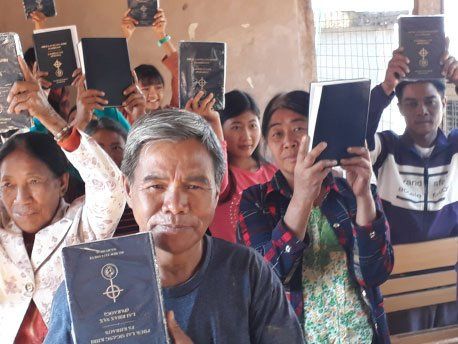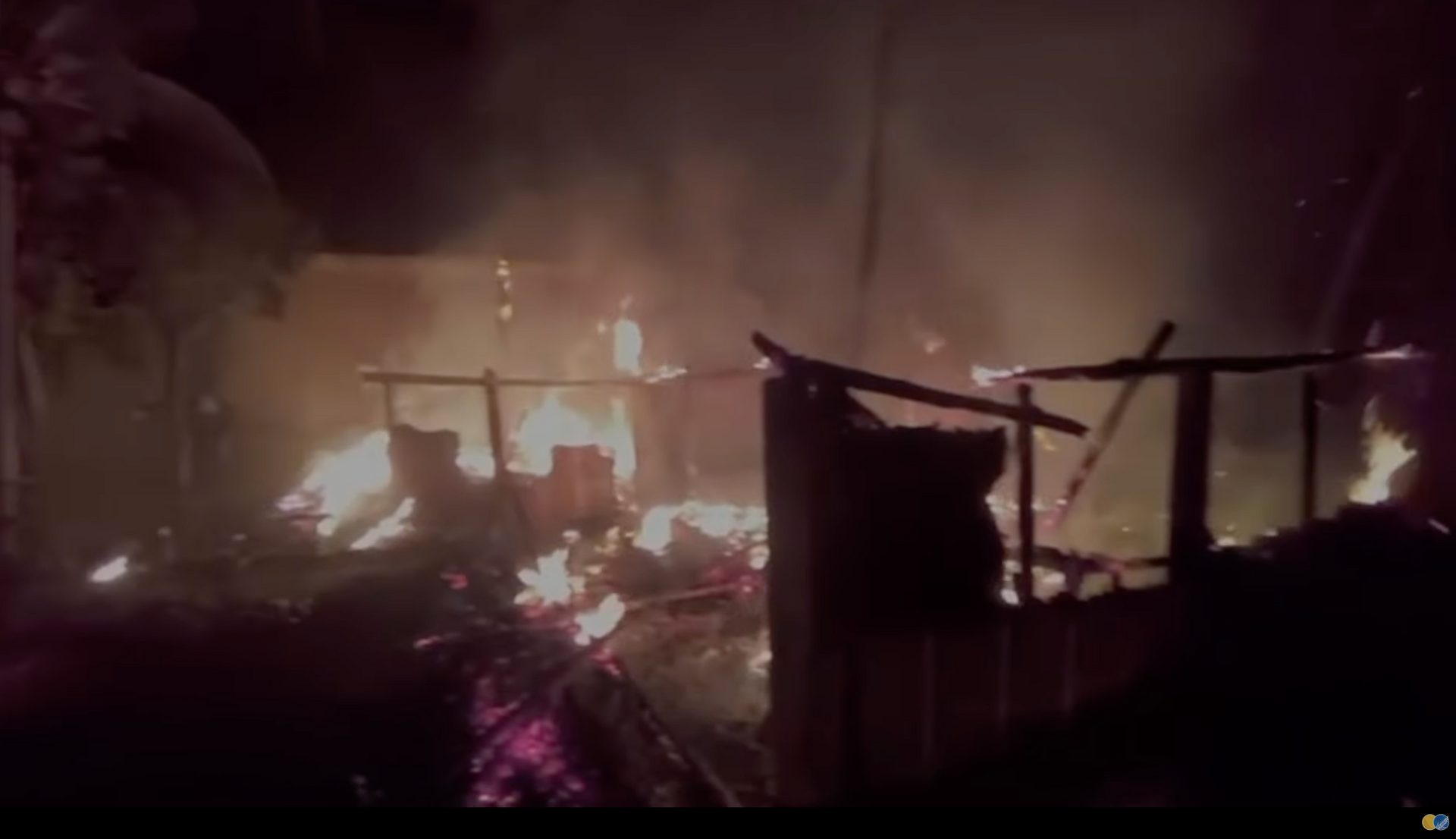Bibles for the Wa People - From Demon-Worshippers to Children of God
"He has made everything beautiful in its time. He has also set eternity in their hearts"
(Ecclesiastes 3:9).
"From one man he made all the nations, that they should inhabit the whole earth; and he marked out their appointed times in history and the boundaries of their lands. God did this so that they would seek him and perhaps reach out for him and find him, though he is not far from any one of us. ‘For in him we live and move and have our being"
(Acts 17:26-28).
You may never have heard of the one million Wa people of northern Myanmar (formerly Burma) and southwest China , but in this newsletter we would like to introduce you to some of our Wa brothers and sisters in Christ, and share how tens of thousands of them are receiving the Word of God in their own heart language for the first time, through our Asian Bible Fund .
Do you know that most missionaries, including us, have been confronted over the years by both heathens outside the Church and misguided people inside the Church, telling us that we should leave "peaceful, loving" tribal people like the Wa alone? "They don't need Christianity," we have been told. "It just messes up their beautiful, harmonious way of life."
Such ignorant statements come from people who have obviously never spent much time on the ground in an Asian village. If they did, they would soon see how desperately the Wa and other tribes need the Gospel of Jesus Christ. Their "peaceful" communities are actually full of strife, bitterness and sin. In the case of the Wa people, they have lived in deep bondage to demons for countless generations, with curses and violence causing many to live in utter terror.
Please don't be sucked in to the lie that any society can find peace or joy apart from God. The Word of God tells us: "We know that we are children of God, and that the whole world is under the control of the evil one" (1 John 5:19).
The recent history of the Wa people has been very difficult and complex. Before Burma gained independence from Britain in 1948, many of the tribes had been promised their own nationhood, but the British cowardly reneged on their promises and abandoned tribes like the Wa, who were left to fight for survival.
As a result, to the present time various civil wars have raged in Myanmar, with tribal armies fighting for freedom from the cruel Burmese military that has killed hundreds of thousands of civilians over the decades.
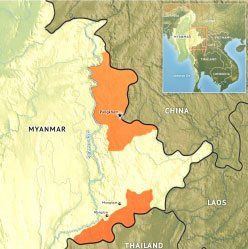
Today, there are no less than 27 different insurgent armies across Myanmar! The Wa are divided into two main groups as shown on this map. The Northern Wa live in areas along the China border, and are ruled by the United Wa State Army, which has about 30,000 troops.
The northern area is closed to outsiders, and is deeply influenced by the Chinese Communists, who provide training and weapons to the Wa army. It is also one of the major drug-producing regions on earth. In recent years many Wa churches inside Myanmar have been forced to close and pastors have been arrested, due to the influence from China's Christian-hating President Xi.
Further south, the Southern Wa live near the Thailand border. They also have their own military, the Wa National Army. Separated by hundreds of miles of dense jungle and rugged mountains, the Wa people have fragmented into about 40 different dialect groups. All Wa people desperately need the Gospel, but have been deprived of God's Word in their language for generations.
The history of Christianity among the Wa is a long one, with God first reaching them with great power through a unique demonstration of His love and grace in the 1880s. The late Don Richardson's wonderful book, Eternity in their Hearts, tells the extraordinary story of how the Gospel first came to the Wa people:
"The Wa were headhunters. Just once a year, in the planting season, Wa tribesmen felt compelled by bloodthirsty spirits to plant human heads in their fields along with their seeds—just to ensure a good crop. Neighboring tribes always wanted to leave for vacation when the Wa were planting their crops, but unfortunately that was when they had to plant their crops too.
A benign influence, however, was at work within the folk religion of the Wa people. From time-to-time prophets of the true God, whom the Wa called Siyeh, arose to condemn headhunting and spirit-appeasement! One such prophet, Pu Chan, appeared during the 1880s. He persuaded several thousand Wa tribesmen to abandon headhunting and spirit worship on the grounds that the true God was about to send a long-awaited white brother with a copy of the lost book. If he came to the Wa territory and heard that the Wa were practicing evil things, he might think them unworthy of the true God's book and turn away again! If that happened, Pu Chan warned, surely the Wa would never get another chance to have the lost book restored to them.
One morning Pu Chan saddled a pony. ‘Follow this pony,' he said to some of his disciples. ‘Siyeh told me last night that the white brother has finally come near! Siyeh will cause this pony to lead you to him. While Pu Chan's disciples gaped in astonishment, the pony started walking. Expecting the pony to stop at the nearest stream, they followed it."
Two hundred miles away, an American missionary from Nebraska, William Young, had recently set up base in the town of Kengtung. One day Young went to the marketplace to preach among the people, and he noticed strangely garbed men gravitating toward him out of the throng in the market.
They were not Wa, but were men from the neighboring Lahu tribe, who God chose to receive the Gospel first. The Lahu had also been waiting for a white man to come with a lost book that would reconnect them to the true God, whom they called Gwi'sha in their language. Richardson continues the story:
"They stared incredulously at the missionary's white face, the interior of the book in his hand, and listened to his description of the laws of God contained in that book. Then, in an outburst of powerful emotion, the Lahu pleaded with Young to follow them up into the mountains. ‘We as a people have been waiting for you for centuries,' they explained. ‘We even have meeting houses built in some of our villages in readiness for your coming.'
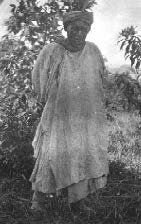
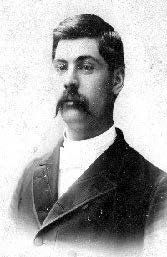
[Our thanks to Marcus Young, the grandson of William, for providing these two precious photos.]
Some of the men showed him bracelets of coarse rope hanging like manacles from their wrists. ‘We have worn ropes like these since time immemorial. They symbolize our bondage to evil spirits. You alone, as the messenger of Gwi'sha, may cut these manacles from our wrists—but only after you have brought the lost book of Gwi'sha to our very hearths!'
Nearly speechless with awe, Young went with them. Tens of thousands of Lahu became Christians, and it was at that stage that Pu Chan saddled his pony (200 miles away in Wa territory) and told his Wa disciples to follow it to the missing book and the messenger of the True God. When the pony finally arrived at the home of William Young, the Wa asked him: ‘Have you brought the book of God?' Young nodded. The men, overcome with emotion, fell at his feet and blurted out, ‘This pony is saddled especially for you. Our people are all waiting. Fetch the book! We must be on our way!"
Thousands of Wa heard the Gospel from both the Young family and the new Lahu Christians. They repented of their sins and gave their lives to Jesus Christ. Young's son, Vincent, later translated the New Testament into Wa.
During much of the 20th century, many Wa people continued to outwardly follow Christ, but their faith generally slipped into dead formalism. A vibrant, life-giving revival was greatly needed among the Wa, lest the amazing breakthroughs of the past would go to waste.
One reason for the spiritual decline among the Wa was the problem with their Bible. Because of their widespread locations and multiple dialects, only a fraction of Wa were able to understand the dialect the Bible was available in.
Some years ago, a Wa Bible committee was set up to address this problem, and a new translation was launched in a common vernacular that many more Wa people could understand.
Asia Harvest has been greatly blessed to provide more than 80,000 new Wa Bibles , free of charge, through our Asian Bible Fund . There are many requests for more, and we invite you to prayerfully consider supporting this strategic endeavor.
In our next post we will introduce you to just a few of our Wa brothers and sisters, as they share how they are overjoyed to finally have God's Word in a form they can easily understand.
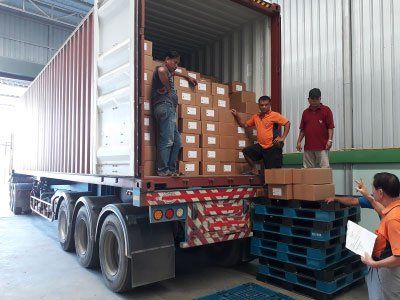
E-Newsletter Sign Up
RECENT POSTS
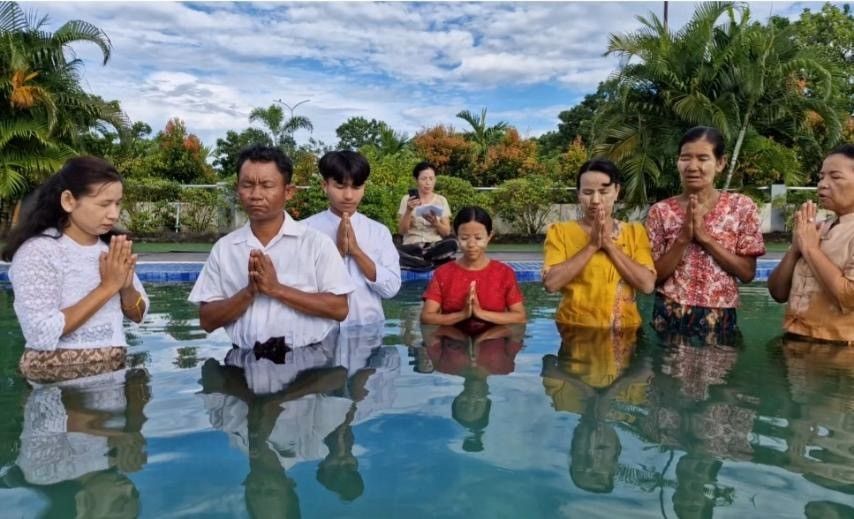
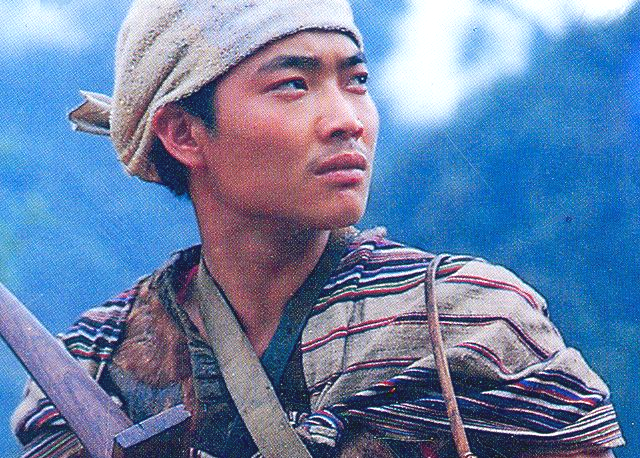
"Feel free to share this message with interested Christians or on social media" - Asia Harvest

